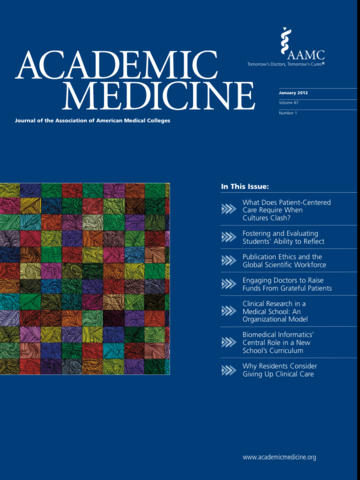 The rise of open access publishing through legitimate publishing venues has opened the door for predatory publishers to take advantage of and profit from researchers seeking to publish the results of their research. Predatory publishers threaten the quality of medical literature via non-existent or sham peer-review processes, unstable publishing platforms which may disappear suddenly and inadequate and/or unqualified editorial oversight.
The rise of open access publishing through legitimate publishing venues has opened the door for predatory publishers to take advantage of and profit from researchers seeking to publish the results of their research. Predatory publishers threaten the quality of medical literature via non-existent or sham peer-review processes, unstable publishing platforms which may disappear suddenly and inadequate and/or unqualified editorial oversight.
Predatory publishers may provide false information by listing editorial board members without the individual's knowledge or consent, and by providing incorrect impact factor information. Predatory publishers may also charge exorbitant or unexpected Article Processing Charges.
A recent article in the February 2017 issue of Academic Medicine tackled the issue of predatory publishing and offered possible solutions for protecting medical literature from this threat. The goal of predatory publishers is to provide “rapid and loose reviews leading to speedy publication in exchange for hefty publication fees” (Harvey & Weinstein, 2016, p. 150).
One common tactic of predatory publishers is to send mass e-mails to physicians and researchers in an effort to solicit article submissions. Many physicians and researchers respond with submissions in an effort to increase their publication numbers. Unfortunately, academic physicians and scientists are easy prey for these publishers as the number of publications often outweighs the quality of publications when considered for promotion and tenure.
Predatory publishers often claim to have a strict peer review process, when in reality, no such peer review process actually exists. The article discusses how a correspondent for Science “submitted a purposefully flawed scientific paper with meaningless results to 304 suspect journals. A responsible peer review process would have promptly rejected the paper, yet over half of the journals accepted it” (Harvey & Weinstein, 2016, p. 150).
The article does offer some possible steps to fight back against predatory publishing:
- Increase awareness of the existence of predatory publishers and educate faculty on the importance of carefully judging their sources of biomedical information and the journals in which they choose to publish.
- Promotion and tenure committees can make an impact by excluding publications in predatory journals from consideration when evaluating faculty, requiring mandatory inclusion of retractions on faculty CV’s, and considering mandatory sanctions for repeated retractions or duplicate publications.
- Scientific organizations should consider creating panels responsible for developing strategies to fight predatory publishing practices.
If you would like help determining whether or not a journal is a predatory publisher, take a look at Himmelfarb’s Scholarly Publishing Research Guide, or contact Ruth Bueter, Serials and Systems Librarian.
 Predatory publishing is a growing problem for faculty, researchers, and librarians.
Predatory publishing is a growing problem for faculty, researchers, and librarians.
 The rise of open access publishing through legitimate publishing venues has opened the door for predatory publishers to take advantage of and profit from researchers seeking to publish the results of their research. Predatory publishers threaten the quality of medical literature via non-existent or sham peer-review processes, unstable publishing platforms which may disappear suddenly and inadequate and/or unqualified editorial oversight.
The rise of open access publishing through legitimate publishing venues has opened the door for predatory publishers to take advantage of and profit from researchers seeking to publish the results of their research. Predatory publishers threaten the quality of medical literature via non-existent or sham peer-review processes, unstable publishing platforms which may disappear suddenly and inadequate and/or unqualified editorial oversight. 